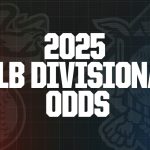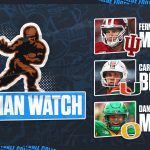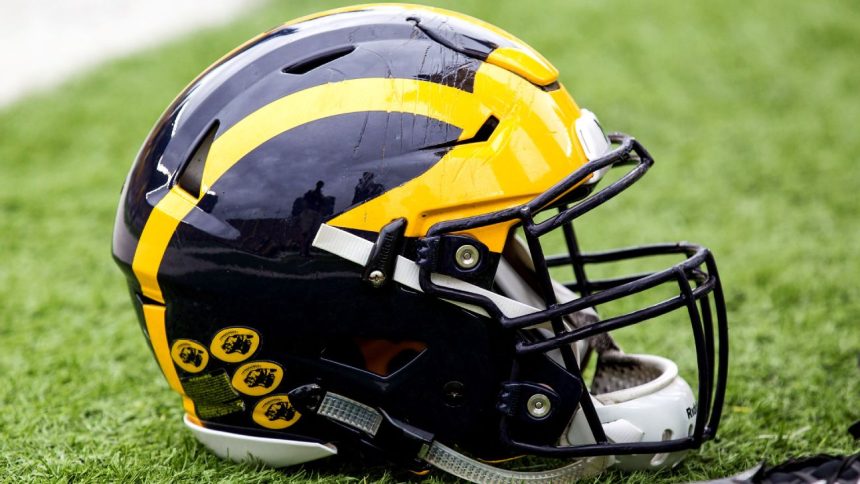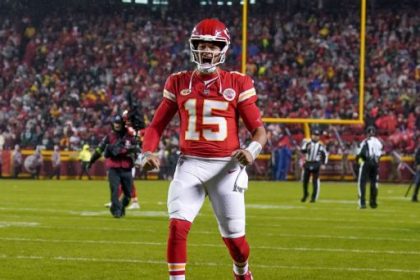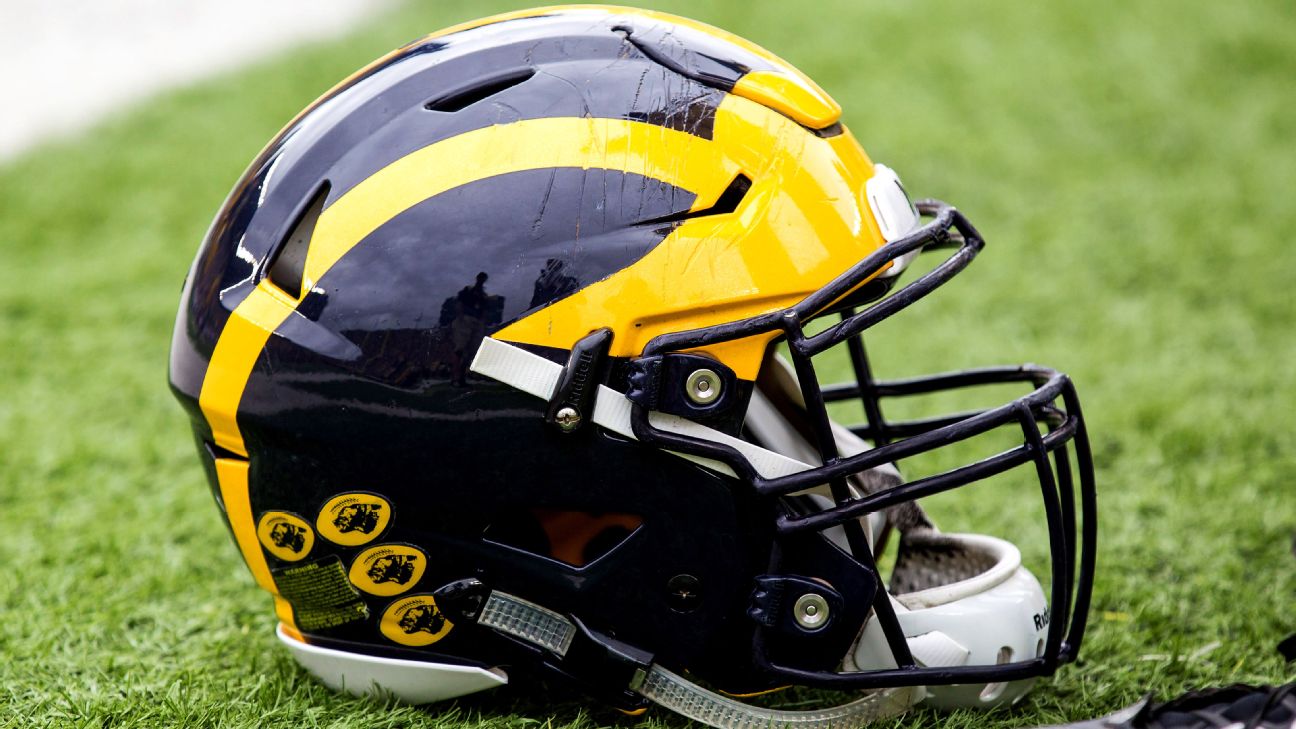
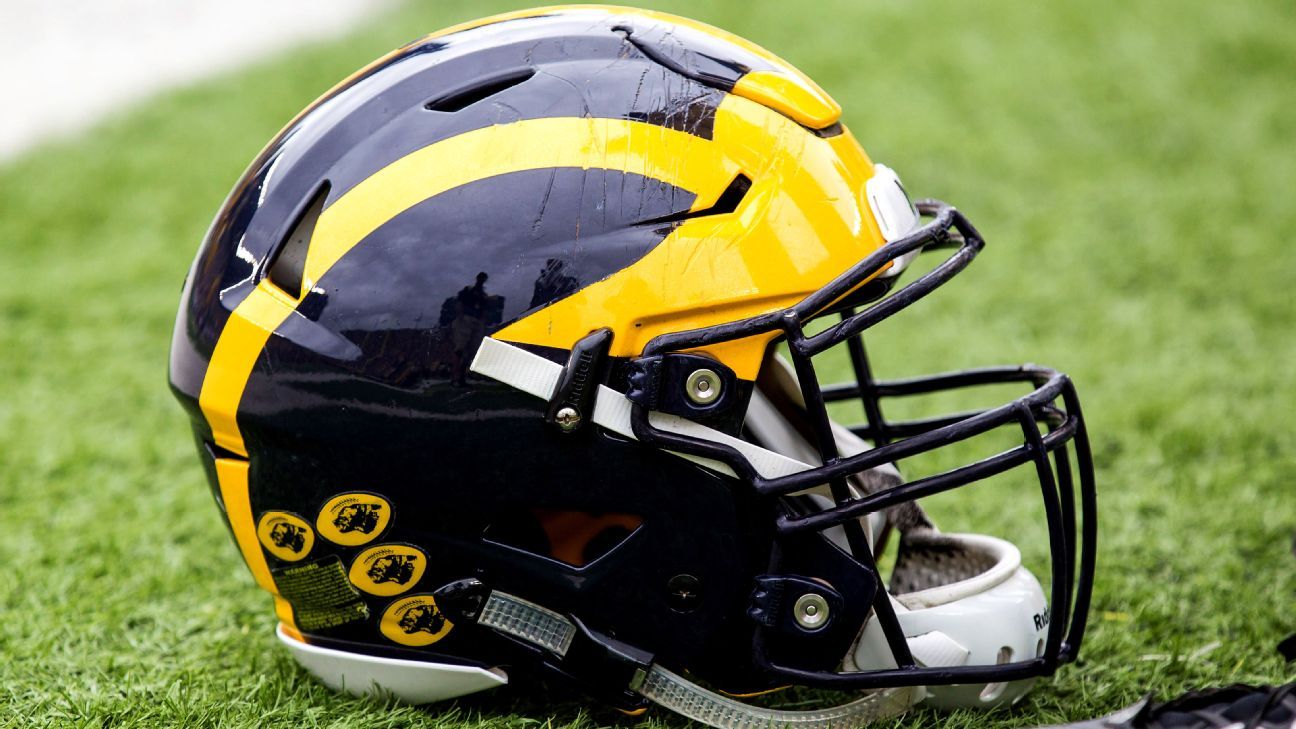
The NCAA is investigating the No. 2 Michigan Wolverines football program amid allegations of sign stealing, the school announced Thursday.
“I want to personally assure you that U-M Athletics will offer its complete cooperation to the NCAA in this matter,” athletic director Warde Manuel said in a statement. “At the University of Michigan, all of us are committed to the highest standards of ethics and integrity for all members of our community. This is the same expectation I have of all coaches, staff, and student-athletes.”
The University of Michigan and the Big Ten were both notified by the NCAA of the investigation Wednesday, and the conference said it had notified the Wolverines’ future opponents.
“The Big Ten Conference considers the integrity of competition to be of utmost importance and will continue to monitor the investigation,” it said in a statement.
A source told ESPN’s Adam Rittenberg that the NCAA’s investigation also includes allegations of similar violations by Michigan before the 2022 season. Upcoming opponents have not expressed opposition to playing Michigan after being notified by the NCAA, sources told ESPN.
The NCAA does not have rules specifically against stealing signs but does prohibit in-person advance scouting of opponents and has bylaws prohibiting unsportsmanlike activities.
According to a report by Yahoo Sports, Michigan allegedly had people attending games of future opponents as well as possible College Football Playoff opponents to gather information on signs used to call plays on offense and defense.
A source confirmed to ESPN that in-person scouting is the focus of the NCAA investigation.
If true, the Wolverines would have violated NCAA Bylaw 11.6.1, which states: “Off-campus, in-person scouting of future opponents (in the same season) is prohibited.”
U.S. Integrity, a Las Vegas firm that monitors the betting market, sent out an alert to its sportsbook clients regarding the Michigan controversy Thursday, ESPN confirmed.
Multiple Big Ten coaches this offseason were advocates of exploring helmet communication as a way to generally better protect signs, a source told ESPN’s Pete Thamel. Potential NCAA rule changes, however, were tabled until after this season.
The NFL has long used helmet communication for signals, with the first version limited to sideline communication in 1994.
Michigan (7-0) plays Michigan State on Saturday.
“We are chagrined by the news of the NCAA investigation and we echo the Big Ten Conference’s commitment to integrity,” Michigan State University interim president Teresa Woodruff said in a statement. “The allegations are concerning, but will be handled through the NCAA’s processes.”
In its statement, Michigan said the investigation would not impact the game.
Wolverines coach Jim Harbaugh has already served a university-imposed three-game suspension this season stemming from alleged recruiting violations during the COVID-19 dead period and for not cooperating with NCAA investigators.
Michigan still is facing four Level II violations, which are considered less serious, from those alleged violations. That ruling from the NCAA is not expected until 2024.
ESPN’s David Purdum and The Associated Press contributed to this report.




